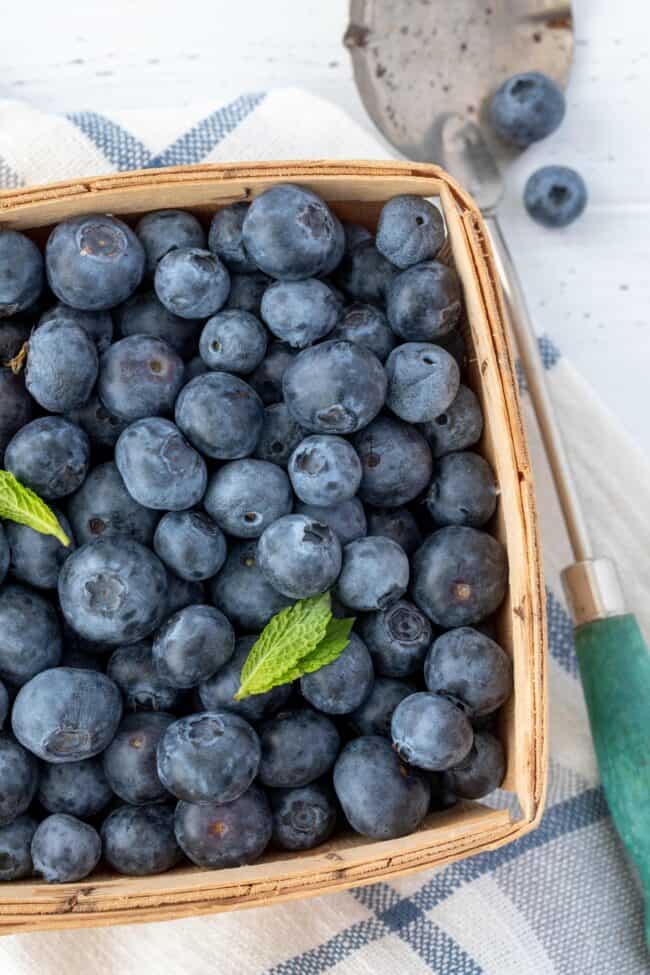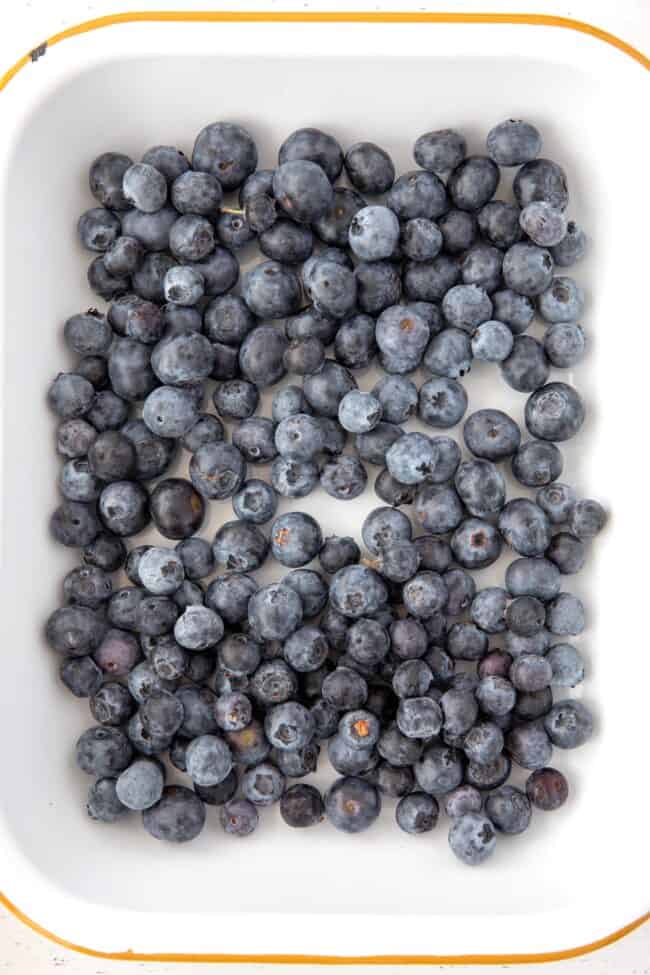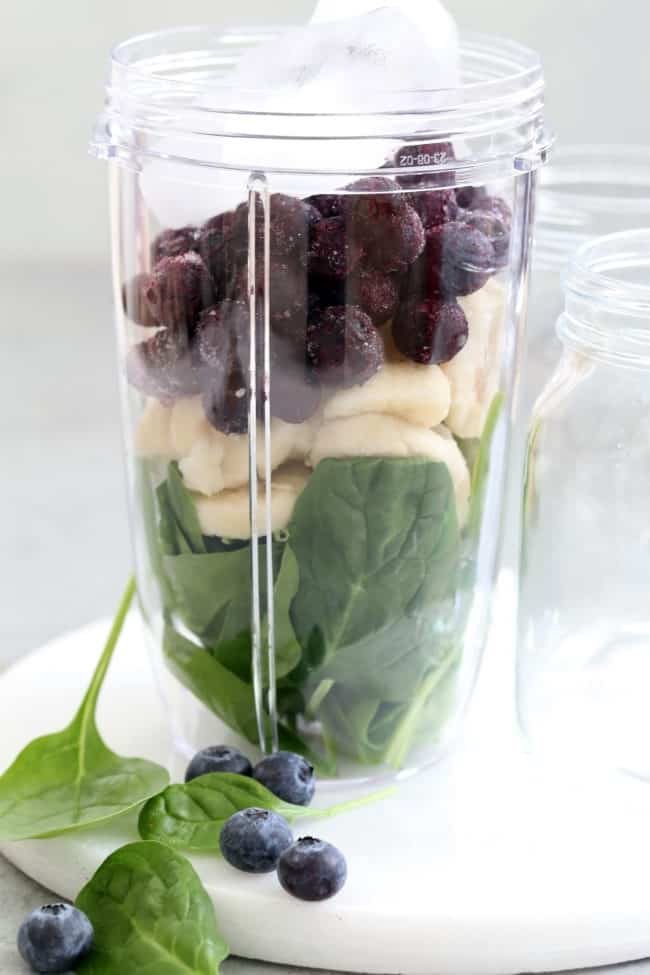Blueberries
Here’s everything you need to know about blueberries. Like, what are blueberries? When is blueberry season? How to choose them, how to store blueberries, plus 20 blueberry recipes to help you add more of them to your diet.

Often labeled a superfood, these little berries are popular to add to smoothies, cereals, salads, muffins and more.
What Are Blueberries?
Blueberries are a small blue or purple fruit that grow on bushes.
Types of Blueberries
There are 5 main types of blueberry bushes that grow in the United States – northern highbush, southern highbush, lowbush, half-high and rabbithigh. The two most common types of blueberries are highbush blueberries (the most common type in the United States) and lowbush blueberries (also called wild blueberries) which are typically smaller in size.
When Are They In Season?
For cultivated blueberries, the season runs most of the year – including imported berries. Cultivated are the most common type that you find at the market.
Wild blueberries are a little harder to come by. They’re grown in cooler climates like Maine and eastern Canada, and they are much smaller in size compared to the cultivated variety. The wild blueberry season is a short one, and they’re most often sold locally near their harvested area. You can however purchase them frozen if fresh aren’t available.
Choosing the Best
Be sure to look for fruit that is dry, firm and have a deep blue color with a chalky white surface (called “bloom”) when purchasing them. The bloom is a sign of freshness. They should move freely in the box when you give them a light shake, otherwise they may be soggy or have mold and are stuck together.
Before refrigerating them when you get home, remove from the container to better inspect them, discarding any that are soggy or have mold, then return them to the container or an air-tight container. This will help to prevent getting mold on other berries.
It’s always a good idea to buy organic, eat them raw and eat them as often as you can (1/2 cup daily) so you can to reap the many benefits they have to offer.
How to Store Blueberries
The best way to store them so they last longer is to keep them in the refrigerator in the container they came in or an air-tight container. They should last in the refrigerator for up to 2 weeks. If you’ve found you’ve purchased more than you can use, just freeze them. Spread the unwashed fruit on a cookie sheet and pop in the freezer for about 1 hour, then transfer the frozen blueberries to a plastic freezer bag. This is a great way to store them so you always have a stash on hand.
Before consuming them, rinse and pat them dry. Discard and small stems and leaves. If you have frozen your berries, then remove them from the freezer and let them thaw for a few minutes before adding them to your dish. When adding them to baking recipes, there’s no need to thaw them first.
Blueberry Recipes
Here’s 20 blueberry recipes to help you add more of them to your diet.
- Add them to smoothies like this Blueberry Spinach Smoothie and this Acai Smoothie Bowl
- Toss them in hot oatmeal cereal, Berry Banana Baked Oatmeal, or cooked quinoa for breakfast
- Add to baked recipes (like Blueberry Muffins, Easy Blueberry Muffins, cakes and cookies and these Berry Oatmeal Crumb Bars)
- Use them to make homemade syrup
- Toss them in plain Greek yogurt with a little honey
- Blend to make juice to add to teas like this Blueberry Green Tea (this is so refreshing – it’s one of my favorite summer drink recipes)
- Add them to batter to make pancakes like these Blueberry Banana Buckwheat Pancakes
- Toss in salads like this Beet Kale Quinoa Salad, Broccoli Detox Salad, House Salad, Blueberry Chicken Salad, Spinach Berry Antioxidant Salad, Summer Berry Salad and Berry Arugula Salad.
- Eat them by the handful as a healthy snack
- Blend them to make these Blueberry Ice Cubes (great added to iced tea, lemonade, and a glass of water)
- Make a warm cozy Summer Blueberry Crisp
- Use them to make jams and jellies, like this Mixed Berry Chia Seed Jam
- Blend them with watermelon, raspberries and basil to make a Basil Berry Granita
More Resources
- Spinach
- Yellow Watermelon
- Passion Fruit
- Is Cucumber a Fruit
- Shallots vs Green Onions
- How to Cut a Pomegranate
- English Cucumber
- Plum Tomatoes
- Quinoa
- Lentils
- Romaine Lettuce
- How Much Juice in One Lemon
- How Many Cups in a Quart
- How Many Teaspoons in a Tablespoon
- How Many Cups in a Pound
- How Many Tablespoons in a Cup



